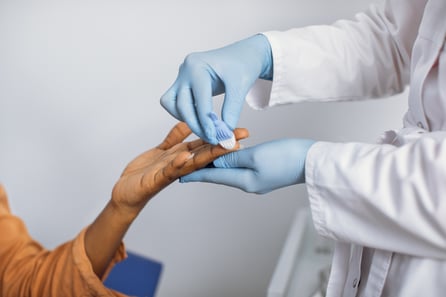 Being knowledgeable and proactive in sexual health is essential to preserving general well-being. An integral component of responsible sexual health practices is routine HIV testing, which gives people the information and resources they need to make decisions about their relationships and overall health.
Being knowledgeable and proactive in sexual health is essential to preserving general well-being. An integral component of responsible sexual health practices is routine HIV testing, which gives people the information and resources they need to make decisions about their relationships and overall health.
Types of HIV Tests
There are various methods of HIV testing, each with its advantages and considerations.
Antibody HIV Tests
These tests identify antibodies the immune system produces in response to HIV infection. They are usually given at medical facilities or via self-testing kits, and they can be carried out with blood, saliva, or urine samples.
Nucleic Acid Tests (NAT) HIV Tests
Also known as RNA tests, these directly identify the genetic material of HIV. NAT is often used for early detection and is commonly performed in healthcare settings.
Rapid HIV Tests
These provide quick results, usually within 20 minutes, making them suitable for point-of-care testing. Rapid tests may use blood, oral fluid, or urine samples.
When Should You Be Tested for HIV?
For reliable findings, HIV testing must be done at the appropriate time. As part of standard healthcare screenings, health organizations suggest routine HIV testing, particularly for those who are sexually active. It is recommended that you get tested if you participate in activities that could expose you to HIV, such as sharing needles or unprotected sex. Timely medical intervention is made possible by early detection. As part of prenatal care, pregnant women are frequently recommended to get tested for HIV to prevent mother-to-child transmission.
Where Can You Get Tested for HIV?
Services for HIV testing are extensively offered at numerous locations. Make an appointment for professional testing and counseling with your primary care physician or a sexual health facility. Countless public health departments and community health clinics provide HIV testing services at no cost or a reduced cost. Convenient and private HIV self-testing kits are available from certain pharmacies. Specialized clinics or groups that focus on sexual health may offer HIV testing.
HIV testing is carried out in the strictest confidence, and privacy regulations usually protect the test findings. Furthermore, counseling services are frequently provided before and after testing to offer assistance, respond to inquiries, and handle any issues.
Interpreting HIV Test Results
Understanding HIV test results is crucial for informed decision-making. Results may be categorized as negative, positive, or inconclusive. A negative result means that there is no evidence of HIV infection, but routine testing is advisable for ongoing protection. A positive result means that there is a presence of HIV antibodies or genetic material. A positive result requires confirmation through additional testing. Inconclusive results may necessitate retesting.
HIV testing is a proactive step toward putting your health and well-being first. People can take control of their sexual health by being aware of the various test options, scheduling a test, comprehending the results, and knowing when to get tested. The expert staff at Lane Regional Medical Center’s Urgent Care, FastLane, is here to help with your HIV testing and other health needs. At FastLane, no appointment is needed, walk-ins only.



.png?width=850&height=850&name=lane%20badge%20(1).png)


-1.png?width=711&height=711&name=healthy%20br%20(4)-1.png)

